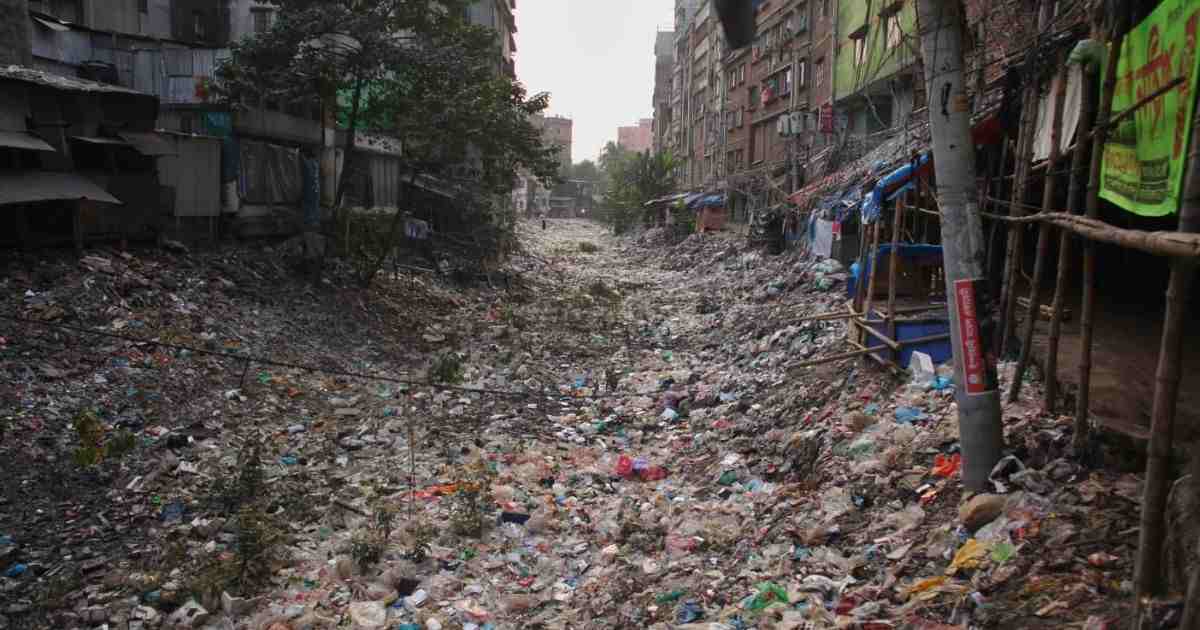The Dhaka North City Corporation (DNCC) has completed dredging 108 kilometres of canals across the city, as part of a broader initiative to revive 220 kilometres of waterways by the end of this year, said DNCC Administrator Mohammad Azaz.
Speaking to BSS, Azaz noted that dredging of the remaining 112 kilometres is on track for completion within the deadline to ensure better water flow and reduce urban flooding risks.
According to Cadastral Survey records (CS Khatiyan), Dhaka once had approximately 340km of canals, though around 120km have been lost to illegal construction of roads and walkways, while many of the remaining stretches are now severely degraded.
Of the 108 kilometres already excavated, approximately 40 kilometres fall under the jurisdiction of Dhaka South City Corporation (DSCC).
However, “the primary objective of the project is to restore the natural water flow in city canals and address the recurring problem of waterlogging during monsoon,” Azaz said.
He acknowledged the support of Syeda Rizwana Hasan, adviser the environment ministry, in facilitating the restoration work.
As part of the initiative, several multi-storey buildings, tin-shed structures, and illegal encroachments were removed in the Mohammadpur area to reclaim land belonging to Haikkar Khal. Similar eviction drives will soon be conducted in other areas across the city, Azaz remarked.
Plans are underway to revive historically important canals, including the Rupnagar Canal, Paris Canal, Ibrahimpur Canal, Kalshi Canal, and the old canal beside ECB Chattar.
“The era of illegal encroachment on canal land is over. Regardless of the size or influence of the encroachers, all unauthorised structures will be demolished to restore the canals,” he claimed.
He noted that there are 17 locations in Dhaka currently experience stagnant water for up to two days during heavy rainfall. Measures are being implemented to mitigate this problem, and it is expected that 10 of these areas will see marked improvement this year.
However, some degree of water stagnation may still occur in the other 7–8 locations.
To ensure long-term durability, RCC structures are being constructed along both banks of the restored 108km canals.

Azaz emphasised that future administrations must carry forward this work, as the current interim government, due to limited time and financial constraints, is unable to undertake large-scale infrastructural projects.
“Sustainable and permanent interventions are necessary to prevent future encroachment,” he said. “Boundary walls, walkways, and other civil structures along canal banks will be critical.”
Highlighting the importance of efficiency and transparency, Azaz remarked, “We completed 108 kilometres of excavation at a cost of less than Tk 5 crore. Had this project been executed by others, the expenditure would likely have been significantly higher.
“This proves that meaningful progress can be achieved through focus, integrity, and minimal resources when there is genuine intent,” he added.
In parallel with the restoration work, a large-scale tree plantation initiative will be launched along both sides of the canals to discourage illegal dumping and future encroachment.
The programme, scheduled to begin on June 1, 2025, will be carried out with support from the Forest Department.
Around 30 voluntary organisations, alongside local residents and environmental groups, are already engaged in canal management activities. The DNCC will provide logistical support, including food and refreshments, to volunteers working on the project.


